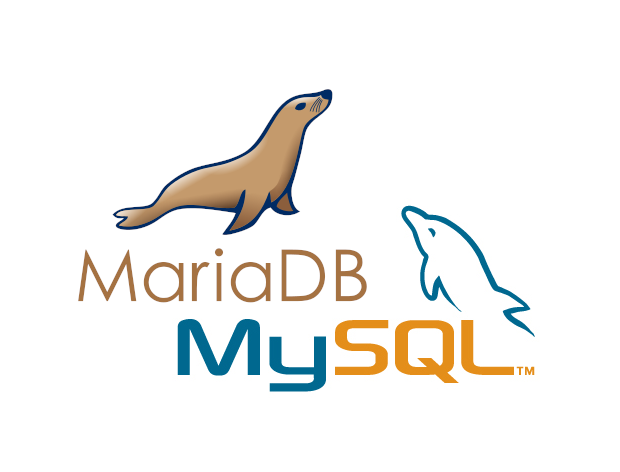New products and services are released every month that dramatically change how we can develop products and manage our IT shops. Innovation is everywhere; it can be hard to keep up, but that is part of the fun.
To help people get a hold of this rapidly changing landscape, I highlighted seven technologies that will help you innovate faster, beat your competition and deliver outstanding customer service. They each address the common challenges of how businesses operate today, and are setting the stage for a new era of IT.
- ElasticBox
ElasticBox offers IT-as-a-service. Its platform enables IT and developer teams to collaborate so they can quickly build, manage and deploy applications to any cloud. ElasticBox eases the friction between the two teams. Generally, IT teams want to slow things down and ensure stability, while developers want to speed things up and innovate. ElasticBox is changing the DevOps dynamic into one that’s more collaborative and efficient. It also offers a wide variety of features for businesses. This gives companies more flexibility with how they move to the cloud by not locking them into a single cloud provider or a specific way of deploying applications.
ElasticBox will be interesting in 2015 because it is in the midst of greatly expanding the scope of its platform. I look forward to seeing how they build more features around their clever solutions to longstanding developer and IT pain points.
- Zimperium
Zimperium has solved the puzzle of protecting mobile devices against advanced mobile threats. Too many players in the security space are stuck on mobile device management (MDM) like the common “Find My iPhone” apps. This has resulted in a lack of truly intelligent enterprise security apps. Zimperium has found a way to fully secure the devices that employees carry everywhere they go, which when exploited, can be a vulnerable entry point to a company’s network and intellectual property.
MDM leaves much to be desired for forward-thinking organizations, and Zimperium will become even more noteworthy in 2015 as MDM continues to die an all-too-slow death. People will soon realize that putting “shackles” on their devices is a losing proposition. This will cause solutions that secure data at rest/transit, as well as support strong authentication (Cert-Based-Auth) and “app stores” to be more broadly deployed.
- ZenPayroll
Startups and SMBs are getting some very cool tools nowadays to give them the power to act like a more established company with greater resources. ZenPayroll takes care of all the payroll legwork for SMBs, vastly simplifying the process of managing employee pay. The startup automates things like tax calculations, payments and direct deposits, which is a godsend for businesses that don’t have a corporate office to deal with managing paying employees.
ZenPayroll will be particularly intriguing in 2015 as the next wave of SaaS solutions meets the challenge of the old-guard of traditional applications like SAP and Oracle. ZenPayroll and others in this new crop of HR upstarts are eliminating the one-year-notice prior upgrade cycle, contentious pricing true-up (which enables revision to pricing after a contract commences), and a few other things that cause IT schedules to fall behind schedule and over-budget.
- OneLogin
OneLogin provides single sign-on and identity management for cloud applications. It eliminates the need for lengthy integration and provisioning projects, manual de-provisioning, protracted on- and off-boarding processes, username and password resets, shadow IT policing, and other inconveniences caused by too many digital identities.
As the security perimeter becomes more and more elastic and location agnostic with further cloud adoption, there will be a slow migration of identity management services such as Active Directory and LDAP hosted on-premises to cloud identity providers. OneLogin will be among the preferred cloud identity providers. Furthermore, stronger authentication factors will be adopted by those who truly understand the shortcomings of password authentication.
- Conjur
The underlying infrastructure of cloud-based apps is pretty complex. There are many moving parts that are often strung together across several servers and databases. This complexity creates friction between the developers who need to write new code and the operations team who needs to watch all the components to make sure nothing crashes. Conjur is great because it easily manages who has access to what code. So for instance, a developer can’t accidentally mess with live code when he should be in a development environment. It can also set rules for what certain pieces of code are allowed to do.
In 2015 and beyond, cloud adoption will surely continue to grow across businesses. This means more and more people will be looking for tools that help them manage the complexity of their cloud apps, so I expect to see lots of growth for companies like Conjur that bring order to the system.
- Illumio
Illumio takes a new approach to securing enterprise applications specifically designed for the cloud-based world. Instead of putting a firewall around everything, its approach is more granular. Illumio secures individual computing workloads as they are en route to the appropriate servers, whether they are in the cloud or bare metal. It’s security regardless of what the underlying infrastructure is.
Enterprise security was a hot topic in 2014 due to massive breaches at consumer retailers and enterprise vendors. Companies in every vertical are more aware now of their vulnerability and more committed to protecting themselves from threats. In 2015, I expect to see increased adoption of tools like Illumio that close dangerous security gaps. Illumio made headlines this year by raising $42.5 million from an A-list group of investors, before even coming out of stealth mode. Now with this funding under its belt, I expect to see continued headlines in the year to come.
- RelateIQ
RelateIQ uses searches of unstructured data from email, social networks and calendars to automate large portions of the sales process. Its system eliminates the need for manual data entry to track sales leads, and adds greater insight into business relationships. Like other companies on this list, it takes complex, unstructured data from a variety of sources and integrates it into a workflow that helps people deliver real business results. In this case, with sales.
Salesforce’s acquisition of RelateIQ earlier this summer points to a strong market demand for the product. Following the acquisition, it will be interesting to see what other boutique CRM options continue to innovate in this space, like Propeller CRM and Insightly.
Ref: Tech Crunch


